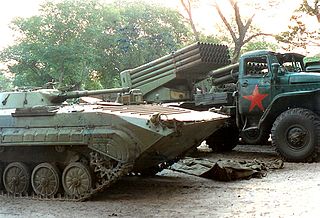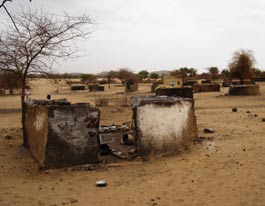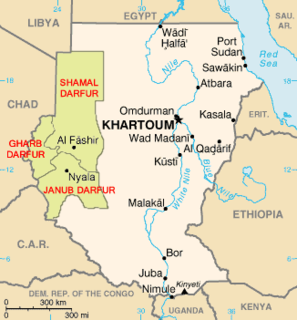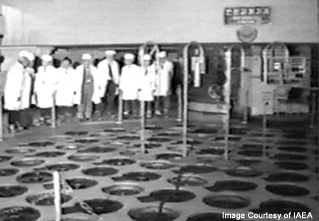The Al-Qaida Sanctions Committee was established on 15 October 1999, pursuant to UN Security Council Resolution 1267. Initially dealing with both al-Qaeda and the Taliban, hence previously known as the Al-Qaida and Taliban Sanctions Committee, it was split on 17 June 2011, creating the new Taliban Sanctions Committee to separately deal with the Taliban.

United Nations Security Council Resolution 1928, adopted unanimously on June 7, 2010, after recalling resolutions 825 (1993), 1540 (2004), 1695 (2006), 1718 (2006), 1874 (2009) and 1887 (2009) on the topics of North Korea and nuclear weapons, the Council extended the mandate of a panel of experts monitoring sanctions against the country until June 12, 2011.
United Nations Security Council resolution 1390, adopted unanimously on 16 January 2002, after recalling resolutions 1267 (1999), 1333 (2000), 1363 (2001), 1368 (2001), 1373 (2001) 1378 (2001) and 1383 (2001) concerning the situation in Afghanistan and terrorism, the Council imposed further sanctions on Osama bin Laden, Al-Qaeda, the Taliban and others associated with them.

United Nations Security Council resolution 1404, adopted unanimously on 18 April 2002, after reaffirming Resolution 864 (1993) and all subsequent resolutions on Angola, particularly resolutions 1127 (1997), 1173 (1998), 1237 (1999), 1295 (2000), 1336 (2001), 1348 (2001) and 1374 (2001), the Council extended the monitoring mechanism of sanctions against UNITA until 19 October 2002.

United Nations Security Council resolution 1499, adopted unanimously on 13 August 2003, after recalling previous resolutions on the situation in the Democratic Republic of the Congo, including resolutions 1457 (2003) and 1493 (2003), the Council extended the mandate of a panel investigating the plundering of natural resources in the country until 31 October 2003.

United Nations Security Council resolution 1521, adopted unanimously on 22 December 2003, after recalling all previous resolutions on the situation in Liberia and West Africa, the Council established a monitoring body to oversee international sanctions against Liberia. It was the final Security Council resolution adopted in 2003.

United Nations Security Council Resolution 1945, adopted on October 14, 2010, after recalling previous resolutions on the situation in Sudan, the Council extended the mandate of an expert panel monitoring an arms embargo and other sanctions on groups that "impede peace in Sudan" until October 19, 2011.

United Nations Security Council resolution 1626, adopted unanimously on 19 September 2005, after recalling all previous resolutions on the situations in Liberia and Sierra Leone, particularly resolutions 1509 (2003), 1610 (2005) and 1620 (2005), the Council extended the mandate of the United Nations Mission in Liberia (UNMIL) until 31 March 2006 and authorised the deployment of 250 troops to Sierra Leone to protect the Special Court.

United Nations Security Council Resolution 1647, adopted unanimously on 20 December 2005, after recalling all previous resolutions on the situations in Liberia and West Africa, the Council extended sanctions including an arms embargo, bans on the sale of diamonds and timber and restrictions on travel for certain officials.

United Nations Security Council Resolution 1650, adopted unanimously on 21 December 2005, after recalling Resolution 1545 (2004) regarding the situation in Burundi, the Council extended the mandate of the United Nations Operation in Burundi (ONUB) until 1 July 2006.

United Nations Security Council Resolution 1651, adopted unanimously on 21 December 2005, after recalling previous resolutions on the situation in Sudan, particularly resolutions 1556 (2004) and 1591 (2005), the Council extended the mandate of an expert panel monitoring sanctions against and violations of human rights in the Darfur region until 29 March 2006. It was the last Security Council resolution adopted in 2005.

United Nations Security Council Resolution 1984, adopted on June 9, 2011, after recalling resolutions 1696 (2006), 1737 (2006), 1747 (2007), 1803 (2008), 1835 (2008), 1887 (2009) and 1929 (2010) concerning Iran and non-proliferation, the Council extended the mandate of an expert panel monitoring sanctions against the country over its nuclear program for a period of one year.

United Nations Security Council Resolution 1985, adopted unanimously on June 10, 2011, after recalling resolutions 825 (1993), 1540 (2004), 1695 (2006), 1718 (2006), 1874 (2009), 1887 (2009), 1928 (2010) on the topics of North Korea and nuclear weapons, the Council extended the mandate of an expert panel monitoring sanctions against the country until June 12, 2012.

United Nations Security Council Resolution 1689, adopted unanimously on June 20, 2006, after recalling all previous resolutions on the situation in Liberia and West Africa, the Council decided to continue sanctions against the import of diamonds from the country for six months, though similar restrictions relating to timber imports were lifted.

United Nations Security Council Resolution 1708, adopted unanimously on September 14, 2006, after recalling previous resolutions on the situation in Côte d'Ivoire, particularly resolutions 1572 (2004), 1584 (2004), 1633 (2005) and 1643 (2005), the Council prolonged the mandate of an expert group monitoring an arms embargo against the country until mid-December 2006.

United Nations Security Council Resolution 1727, adopted unanimously on December 15, 2006, after recalling previous resolutions on the situation in Côte d'Ivoire, the Council renewed an arms and diamond embargo on the country until October 31, 2007.

United Nations Security Council Resolution 1731, adopted unanimously on December 20, 2006, after recalling all previous resolutions on the situations in Liberia and West Africa, the Council extended arms and travel embargoes on the country for one year and a ban on the sale of diamonds for a period of six months.

United Nations Security Council Resolution 1735, adopted unanimously on December 22, 2006, after recalling resolutions 1267 (1999), 1333 (2000), 1363 (2001), 1373 (2001), 1390 (2001), 1452 (2002), 1455 (2003), 1526 (2004), 1566 (2004), 1617 (2005), 1624 (2005) and 1699 (2005) on terrorism, the Council approved measures to improve the identification and control of terrorists.
United Nations Security Council Resolution 1819 was unanimously adopted on 18 June 2008.

The UN Security Council Sanctions Committee on North Korea is a subsidiary body established in 2006 by the UN Security Council's resolution 1718 in response to North Korea's first nuclear test and its other nuclear proliferation efforts.



















